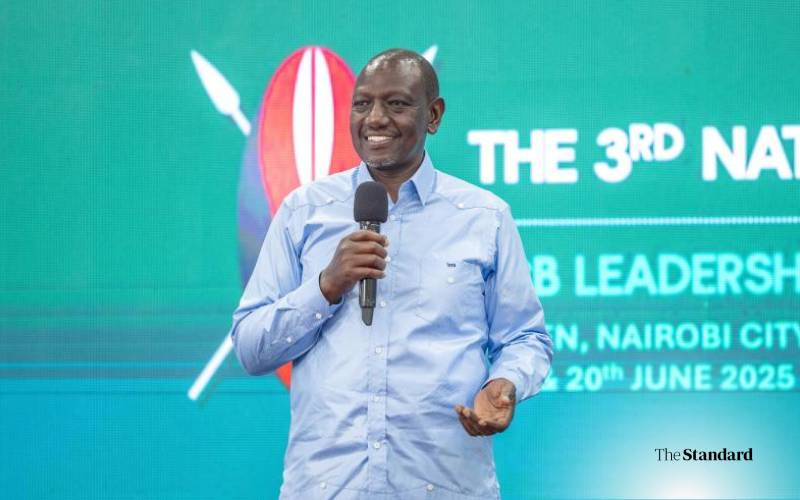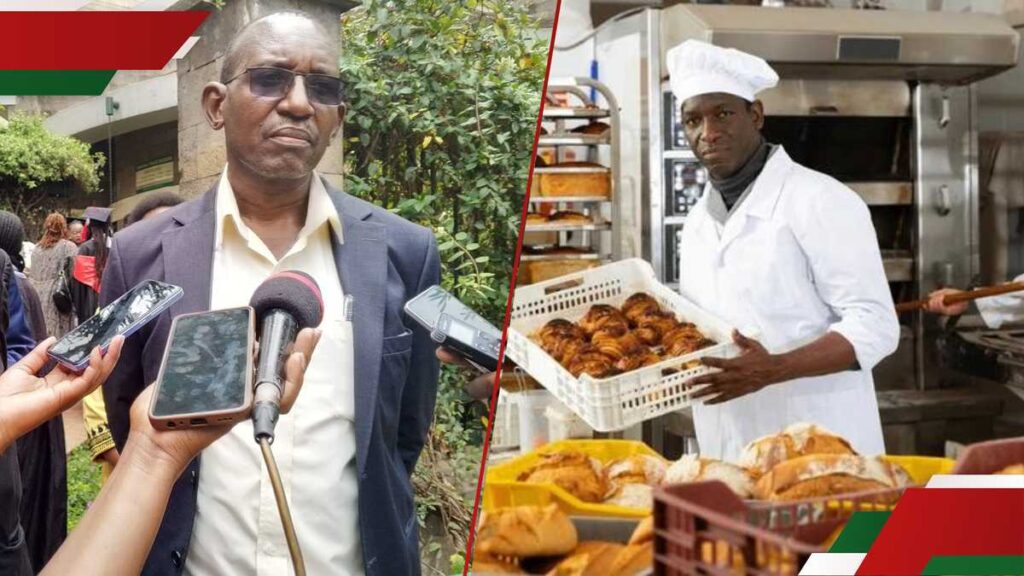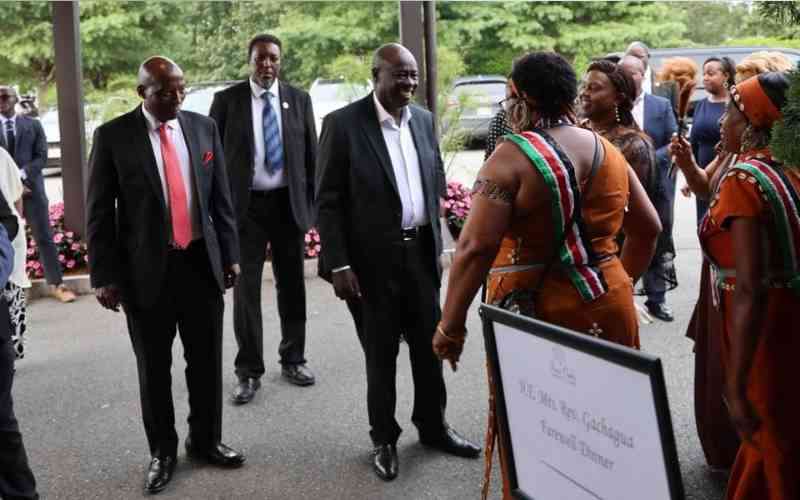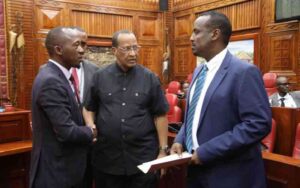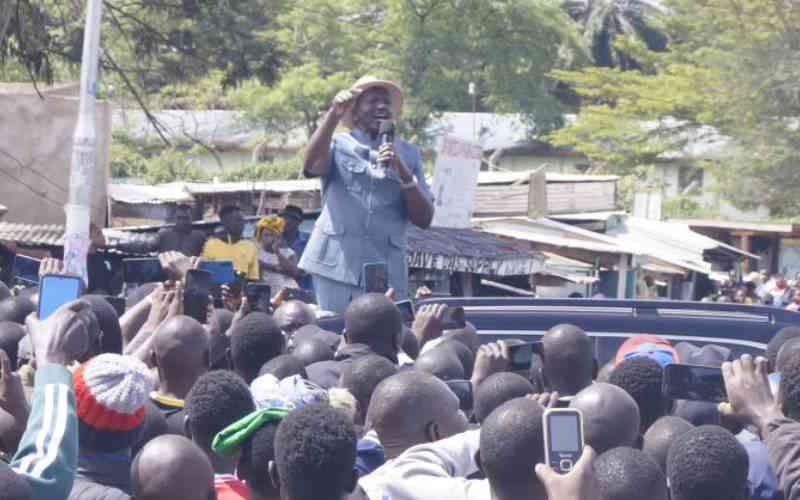The Sh23.5 billion County Aggregation and Industrial Parks project risks becoming a white elephant, as most of them do not represent value for money, the Senate has warned.
This came to light following a report by Auditor-General Nancy Gathungu, which established that the multi-billion-shilling projects spread across the country showed a lack of value for money for the people, as most of the parks are incomplete despite incurring millions of shillings.
Appearing before the Senate County Public Accounts Committee, Siaya Governor James Orengo said they have been left with warehouses that no investor needs, pointing out that the projects were doomed to fail from the start.
Orengo told the committee chaired by Homa Bay Senator Moses Kajwang’ that the national government failed to conduct any assessment on whether the industrial parks were necessary or the purposes for which they were to be established before engaging the counties.
“The national government solely ran the show on the designing of County Aggregation and Industrial Parks, not only of the actual infrastructure, but also of how it was supposed to be done. Counties that were to foot Sh11.75 billion at Sh250 million each were not involved,” said Orengo.
The governor said that in Siaya, they have only received Sh53 million at the beginning of the current financial year out of the Sh250 million the national government was to give, despite the county government having invested Sh123 million from their end for the project.
Orengo said that in the financial year ending June 2024, for instance, only Sh1.15 billion was disbursed against the budget of Sh4.5 billion, while in the fiscal year ending June 2025, the budget was Sh2 billion, but only Sh1 billion was disbursed, with the second and third phases facing budget cuts.
The Governor said that in as much as the project might have been necessary, a study should have first been done with variations according to the needs of the different counties, and that a design that meets the requirements of a county and its agricultural strong points should have been the bare minimum.
“I believe that the private sector should have been involved before any infrastructure was put on the ground, since they have not been engaged yet, they wanted to invest in the projects, and maybe they could have recommended a design that is suitable for their work,” said Orengo.
The Governor argued that the national government wanted to replicate the concept of the old industrial estates, coming up with a concept to be adapted at the county level and provide funding, but this was not well-thought out with most of those parks turned into something other than industrial estates.
Orengo gave the example where the project required counties to have a minimum of 200 acres for the project, citing the case of Nairobi City, wondering where someone can get such land for the project, which has made them stall and fail to achieve the intended purposes.
The revelations by the Governor prompted Kajwang’ to express fears that the Sh23.5 billion project is on the verge of being a conditional grant that does not seem to be on the way to delivering value for the people, asking whether they are likely to be white elephants since views of the stakeholders were not factored in.
“The Sh500 million we are spending in that industrial park, Sh300 million would have allowed me to do a cotton ginnery with more value addition but now we are just building warehouses and we now want to ask people to buy the idea,” said Orengo.
Stay informed. Subscribe to our newsletter
The Governor said that in Siaya, for example, they need a modern cotton and textile ginnery, but the industrial park is just a warehouse, adding that they have talked to possible investors in the cotton industry who say this is just a warehouse and it does not measure up to their requirements.
Nyamira Senator Okong’o Omogeni asked Orengo whether this project was pushed down the throats of Siaya people and whether there is no good news for the people concerning the project of which the Governor said the national government spearheaded the implementation of the projects.
Nairobi Senator Edwin Sifuna said that whereas there is no value for the people of Siaya, there is value for the people getting the contracts to build the warehouses, stating that the projects were forced down on counties because someone was making money from them.
Sifuna said that Makueni Governor Mutula Kilonzo Junior told the Senators nobody wanted to listen to him even in terms of design or size of the buildings because everything was decided in Nairobi and that whether a governor liked it or not, the projects were to go on because people’s stomachs have to be filled.
“This is a huge scam, just like the affordable housing project. If you ask the governor who the contractors are, he does not know because the contractors are from Nairobi. We are just in a building spree because people are in the business of supplying building materials,” said Sifuna.
Taita Taveta Senator Johnes Mwaruma wondered why some counties accepted the projects yet they have nothing to aggregate stating that when they build an industrial park, and they have nothing to aggregate, then they are left asking themselves what should come first.
Nandi Senator Samson Cherargei asked the governor whether there was a standardised legal framework in terms of engagement between the national and county governments with Orengo telling the senators the project is a classic case of when the national government decides what is good for counties and commits money when indeed some counties may not need those industrial parks.
“When you look at the designs, it is like one design fits all and you find some counties and, in most counties, I do not think the parks serve the purpose for which they were designed; they would rather use that money for other demanding projects,” said Orengo.
Senator Cherargei asked Orengo whether governors have expressed their reservations against the unilateral decision by the national government concerning the project at the Intergovernmental Budget and Economic Council.
“This matter was political in nature; we had little choice since if you refused to take the money and the people are seeing brick and mortar coming up in other counties, you would be in trouble,” said Orengo.








